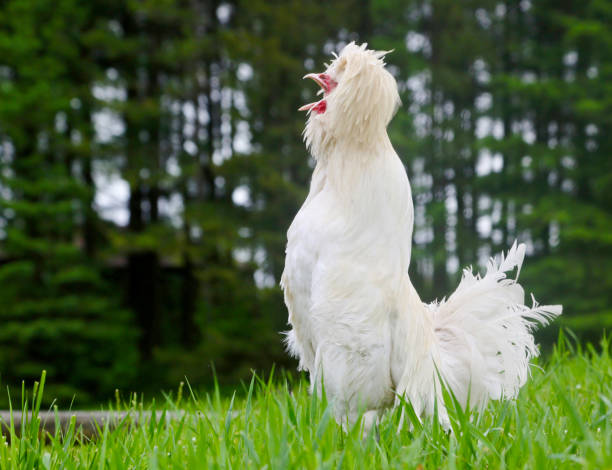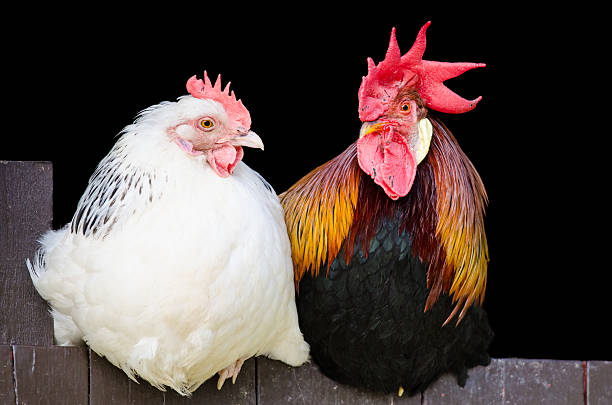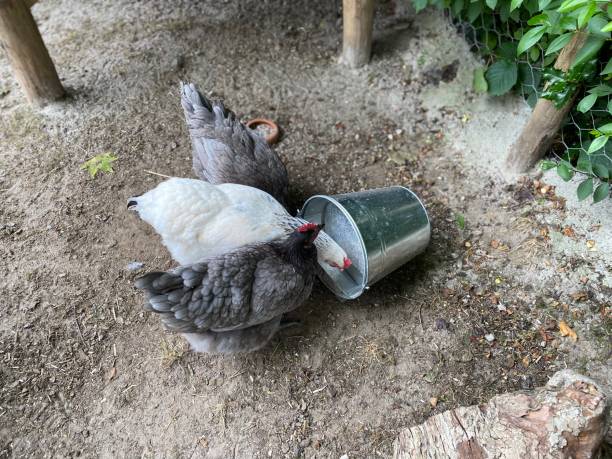Thinking about adding a rooster to your flock? Many chicken keepers wonder whether a rooster is a good addition, especially if they’re raising chickens for eggs. Roosters come with unique advantages but also bring a few challenges. In this guide, we’ll explore the reasons why having a rooster in your flock can be beneficial, as well as some potential drawbacks to consider. Whether you’re new to backyard chickens or thinking of expanding your flock, here’s everything you need to know about the pros and cons of keeping a rooster.
Why Do You Need a Rooster in Your Flock? The Benefits
1. Flock Protection
One of the biggest reasons to have a rooster is for protection. Roosters are naturally protective and alert, keeping a close eye on their surroundings to guard the flock from predators. With a rooster on duty, your hens have an extra layer of security, especially against ground predators like foxes and hawks.
- Pro Tip: Breeds like Orpingtons or Australorps are known for having protective but gentle roosters, making them a popular choice in backyard flocks.
2. Fertile Eggs for Hatching
If you’d like to expand your flock or raise your own chicks, a rooster is essential. Without a rooster, eggs are unfertilized and will never hatch. A rooster allows you to breed your own chickens, giving you control over the flock’s genetics and allowing you to raise new generations naturally.
- Did You Know?Some breeds produce better layers, while others are great meat birds. With a rooster, you can selectively breed for traits you want in your flock!
3. Natural Flock Leadership
Roosters naturally establish a hierarchy within the flock, guiding the hens and helping maintain order. This can reduce squabbles among hens and create a more harmonious flock dynamic. In some cases, a rooster can help prevent bullying among hens by keeping them organized.
4. Guiding Hens to Food and Water
Roosters often take on the role of “provider” in a flock, finding food sources and leading hens to them. This behavior is especially helpful if your flock free-ranges, as the rooster will keep an eye out for good foraging spots and gather the hens together when it’s time to move.
5. Early Warning System for Flock Safety
Roosters are incredibly alert and will sound the alarm if they sense danger. With their sharp eyes and loud crow, a rooster can warn your flock and give you a heads-up to potential threats in your backyard. This can be a lifesaver, especially if you live in an area with many predators.
6. Beautiful Addition to Your Flock
There’s no denying that roosters add a striking visual element to a flock. With their vibrant feathers, long tail plumes, and bright combs, roosters can bring a lot of charm and beauty to your coop. Certain breeds, like the Silver Laced Wyandotte and Rhode Island Red, have particularly beautiful roosters.
7. Encourages Hens to Be More Active
Roosters are generally more active and energetic than hens, which can encourage the hens to stay more active as well. This can be helpful for flock health, as a rooster’s movement and foraging behavior often inspire the hens to follow along.

Drawbacks of Keeping a Rooster: What to Consider
While roosters bring several benefits to a flock, they also come with a few challenges. Here are some factors to weigh before deciding to add a rooster:
1. Aggression and Dominance
Roosters can be aggressive, particularly during the breeding season. Some roosters may become protective to the point of showing aggression toward humans, especially if they perceive you as a threat. While not all roosters are aggressive, this behavior can be problematic in a family environment or if you have children.
- Tip: If aggression is a concern, consider breeds known for their docile roosters, such as Cochins or Silkies.
2. Noise Levels
Roosters crow—a lot! While many people enjoy the classic sound of a rooster’s crow, it can be an issue if you have close neighbors or live in a suburban area. Roosters tend to crow not just at sunrise but throughout the day, which could lead to noise complaints.
3. Potential for Overbreeding Hens
Roosters may over-mate with hens, which can be stressful and lead to feather loss or even injury. If you have a small flock, this can be a concern, as the rooster may focus on a few hens too frequently.
- Solution: A good hen-to-rooster ratio is about 8-12 hens per rooster to avoid overbreeding. If you have a small flock, consider adding more hens or keeping your rooster in a separate area part of the time.
4. Space Requirements
Roosters need adequate space to prevent territorial disputes and maintain peace within the flock. If your coop or yard is small, adding a rooster might create crowding and lead to tension, especially with other roosters.
5. Possible Injury Risk to Hens and Chicks
Roosters have spurs—sharp, bony growths on their legs—that can potentially injure hens or other chickens if they become too assertive. While this doesn’t always happen, it’s something to keep in mind, especially with young chicks in the flock.

Rooster Alternatives: Fertile Eggs Without a Rooster
If you’re interested in hatching chicks but aren’t ready for the commitment of a rooster, there are alternatives. Fertile eggs can be purchased from breeders or hatcheries, allowing you to hatch chicks without the need to keep a rooster long-term. This can be a good compromise if you want chicks without adding a permanent rooster to your flock.
Rooster or No Rooster? Weighing the Pros and Cons
So, is a rooster right for your flock? Here’s a quick summary of the pros and cons:
Pros of Keeping a Rooster:
- Provides protection and security for your flock
- Enables hatching and raising your own chicks
- Adds natural leadership and order within the flock
- Enhances flock activity and helps lead hens to food
- Adds beauty and character to your coop
Cons of Keeping a Rooster:
- Potential aggression, especially in certain breeds
- Noise that could disturb neighbors
- Risk of overbreeding and stress for hens
- Requires more space and coop management
- Risk of injury to hens or other chickens
Adding a rooster to your flock can be a rewarding experience if you’re looking for natural protection, fertile eggs, and a structured flock dynamic. However, roosters do require some extra management and can come with challenges, particularly in smaller flocks. Weighing the pros and cons of keeping a rooster will help you make an informed decision based on your flock’s needs and your setup.
Whatever you decide, understanding the unique role of a rooster can help you appreciate the important part they play in a backyard flock. Here’s to a happy, well-balanced flock, whether or not you choose to include a rooster!




Leave a comment
All comments are moderated before being published.
This site is protected by hCaptcha and the hCaptcha Privacy Policy and Terms of Service apply.